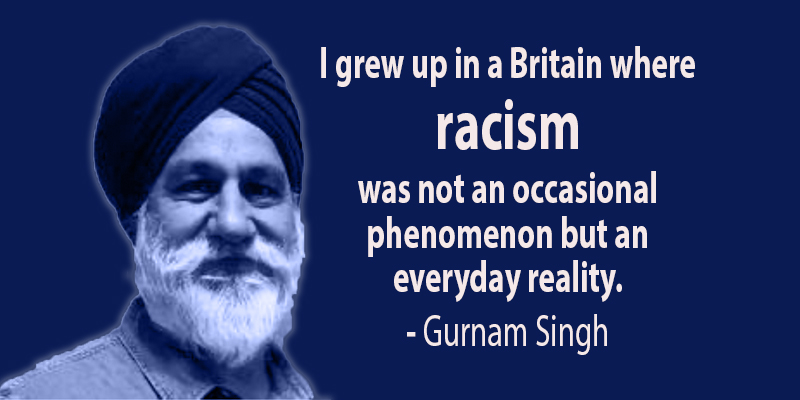
By Gurnam Singh | Opinion |
Reflecting on the rise of fascism in Europe and the collapse of even the semblance of democratic norms, Antonio Gramsci, writing in his Prison Notebooks, warned of a profound historical transition. It was here that he penned his now famous line: “The old world is dying and the new world is struggling to be born; now is the time of monsters.”
Throughout history, societies have faced moments of rupture, periods of legal and political in betweenness that occur after the death of an established order and before the consolidation of its successor. These moments are rarely contained within national borders. Instead, they ripple outward and become global disruptions, resembling political and economic tsunamis.
Decades later, the Slovenian philosopher Slavoj Žižek reformulated Gramsci’s insight in his 2010 essay A Permanent Economic Emergency, published in New Left Review. Žižek used the metaphor to make sense of the 2008 global financial collapse and the far reaching fallout that followed.
Since that crisis, governments have risen and fallen, while austerity has been normalised across much of the world. Another consequence has been the increasing targeting of migrants, asylum seekers and refugees. In many Western nations, visible minorities, especially those perceived to be Muslim, have become convenient scapegoats. Today, there are few countries that are not either governed by right wing leaders or being drawn towards more authoritarian policies as part of a wider rightward shift.
It is within this climate that we must understand the disturbing allegations surrounding Nigel Farage, leader of Reform UK since 2024 and an enduring icon of the British Far Right. In recent weeks he has faced claims that during his school days he displayed racist and anti Semitic behaviour, including apparent admiration for Hitler and the Nazi regime. Farage has dismissed these allegations, insisting that he cannot recall events that took place more than 50 years ago.
For many like me us who grew up in Britain’s post war migrant communities, these claims sound painfully familiar. They resonate not only because of what Farage represents today, but because they echo memories we wish we could forget but never can.
Where Memory Diverges; The Victims and the Oppressors.
I grew up in a Britain where racism was not an occasional phenomenon but an everyday reality. From the age of three until around 16, I cannot remember a single day when I was not subjected to racial abuse, taunts or violence, whether that was on the streets or in school. No place was safe; even our homes were frequently attacked. It was relentless, brutal and most tragically, it was normalised.
Stuart Hall described this as everyday or common sense racism, a form of racism so deeply woven into social and institutional life that it becomes almost invisible to those who perpetrate it. For them, these incidents were trivial or forgettable. For those of us who bore the brunt of them, they shaped our childhoods, our sense of self and our understanding of Britain.
This is why Farage’s assertion that he simply cannot remember does not convince people like us. Racists forget because they can; victims remember because they must.
The Fiction of Harmless Banter
Part of Farage’s defence is the claim that even if he did say certain things, they were merely schoolboy jokes. My experience tells me otherwise. Racism is never harmless; racism and banter cannot occupy the same moral space. To describe racist behaviour as idle joking is to trivialise the humiliation, the fear and the psychological scars it leaves behind.
By my early teens I had reached a breaking point and began to fight back, verbally, emotionally and sometimes physically. Being strong, confident and eventually captain of the school football team offered some protection. Yet it did not erase the racism; it only changed how I navigated it.
Selective Amnesia – A convenient excuse.
Psychology tells us that we tend to forget what carries little emotional weight. Everyday racism, so casual and unremarkable to those who inflict it, barely registers in their memory. But there is another, more calculated explanation for Farage’s selective amnesia.
He fully understands the political consequences. At a time when the Far Right is working hard to appear respectable and mainstream, any admission of past extremist behaviour threatens the carefully cultivated image he presents to the public.
Thus, he denies. He minimises. He forgets, selectively and strategically.
A Missed Opportunity for Redemption
What is most striking is how differently the public might have responded had Farage chosen honesty over evasion. Had he acknowledged that as a teenager he was swept up in the racist culture of the time, had he expressed remorse and shown moral growth, many might have been willing to accept it.
Accountability, even decades later, can bring closure and even redemption.
Instead, his refusal to confront his past ensures that this story will continue to shadow him. His evasiveness invites further scrutiny and suggests there may be more to uncover.
A Wider Lesson for Anti racists.
For those committed to anti-racism and those from South Asian and African Caribbean backgrounds, in particular, this episode is not only about Farage as an individual. It is a reminder of the Britain many of us grew up in. It speaks to the resilience and unity required to survive the racism of the 1960s, 1970s and 1980s. And it highlights a troubling reality; Far Right narratives are once again finding fertile ground, and racialised minorities are once again being positioned as convenient scapegoats.
Farage’s alleged behaviour, even if it belongs to his distant past, is emblematic of a broader unwillingness within significant sections of British society to confront uncomfortable truths about racism, both historical and contemporary.
Why Remembering Matters
For people like Farage, the past is a political inconvenience. For people like us, the past is lived experience.
The memories of racist abuse do not fade with time. They remain vivid, painful and instructive, reminding us why the politics of intolerance, exclusion and denial must always be challenged with honesty and courage.

Gurnam Singh is an academic activist dedicated to human rights, liberty, equality, social and environmental justice. He is an Associate Professor of Sociology at University of Warwick, UK. He can be contacted at Gurnam.singh.1@warwick.ac.uk
* This is the opinion of the writer and does not necessarily represent the views of Asia Samachar.
RELATED STORY:
The Demise of the Akali Dal and the Badal Dynasty: What Next for the Panth? (Asia Samachar, 5 Aug 2024)
ASIA SAMACHAR is an online newspaper for Sikhs / Punjabis in Southeast Asia and beyond. You can leave your comments at our website, Facebook, Twitter, and Instagram. We will delete comments we deem offensive or potentially libelous. You can reach us via WhatsApp +6017-335-1399 or email: asia.samachar@gmail.com. For obituary





























